Lucy Peros | All photos courtesy of Tony Ramil
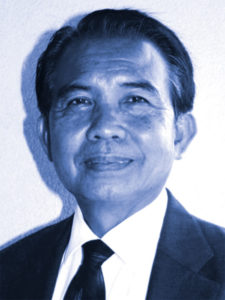
This Sakada Offspring is a lawyer, community leader, and author/writer. Some of his favorite sayings are: “ A life lived without ideals or meaningful purpose is a wasted life.” Also, “Ti agsakbay agsaguday ket ti nasalukag agbiag.” Translation: One who is prudent has an advantage and one who is diligent prospers.
Antonio Ramil was born on November 13, 1940, in Bacarra, Ilocos Norte, Philippines. His parents were the late Eusebio E. Ramil and Mercedes Ramil. His father came to Hawai‘i in 1946, one of the last Sakadas, and worked for six months on Kaua‘i, then moved to Maunaloa, Molokai where he worked in the pineapple fields. Both of Tony’s grandparents, the late Faustino Ramil and Benito Velasco from Bacarra, Ilocos Norte were Sakadas and worked in Hawai‘i’s sugar plantations in the mid to late 1920’s for five years and then returned to the Philippines.
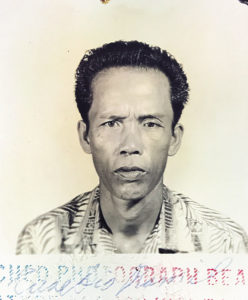
Together with his mother, Mercedes, Tony came to Hawai‘i in April 1970 to join his father, and has been a resident of Hawai‘i since.
Tony married the former Luz Romero on July 7, 1973 at Christ The King Church in Kahului. They have three married daughters, Iris How (Matthew), a teacher in Arkansas, Aimee Pang (Matthew), an associate architect with Group 70 International, and Audree Simmons (Erik), working with the finance department of Kaimuki Christian Church on O‘ahu. Tony and Luz have four grandchildren, Kekoa and Melia How, Abigail Pang, and Kekai Antonio Simmons.
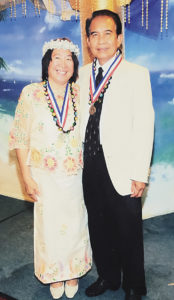
Tony attended and graduated from San Agustin Elementary School and the Bacarra Provincial High School, in his hometown, and then went on to the University of the Philippines (UP) in Diliman, Quezon City in Manila, where he obtained a Bachelor of Science Degree and then a Bachelor of Laws in 1965. At UP, he took Advance ROTC where he rose to the rank of cadet Lieutenant Colonel. Former Philippine Vice President Jejomar Binay and former Philippine Consul in Honolulu, Walter Salmingo were his cadets. Salmingo rose to the rank of Ambassador assigned in the Middle East.
While in the College of Law, Tony served as business manager and then Associate Editor of the The Philippine Collegian, the university student newspaper. He was elected and served one year as university councilor in the UP Student Council and was involved in student public demonstrations at the time. He was elected life member of the international honor societies Phi Kappa Phi and Pi Gamma Mu.
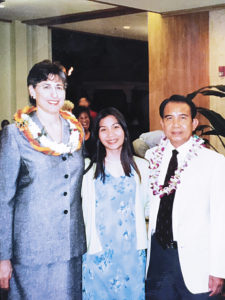
In 1965, Tony was admitted to the practice of law in the Philippines. He was one of the Top Ten among those who passed the bar exams, placing number nine. He practiced law in the Philippines for about five years, and worked with the law firm of SyCip Salazar, the largest law firm in the Philippines at the time.
Shortly after his arrival on Maui, Tony worked as a legal assistant with the law firm of Ueoka, Vail & Luna. Then in 1976, he took and passed the Hawai‘i bar exams, becoming the first graduate of a foreign law school to be admitted to the practice of law in Hawai‘i. He was in his second year at the University of Hawai‘i law school when the school certified him to take the bar exams pursuant to amended rules approved by the Hawai‘i Supreme Court allowing certain foreign law school graduates to take the bar exams. The Hawai‘i Supreme Court amended the rules in response to representations by Filipino community leaders. Tony has been in private law practice since 1976, first as an associate with Ueoka & Luna, and then as a solo practitioner since 1982.
 As a very community-minded person, Tony has actively volunteered his time and resources to programs and services aimed at improving the social, health, and economic welfare of others.
As a very community-minded person, Tony has actively volunteered his time and resources to programs and services aimed at improving the social, health, and economic welfare of others.
Among his many areas of involvement in the community and service as an officer are: Kahului School Parents Teachers Association and Maui District PTSA; Maui Filipino Community Council in which he urged the MFCC to support the establishment of the State Park at Mākena, Hawai‘i; Hawai‘i Council for the Humanities; March of Dimes; Martin Luther King, Jr. Interim Commission; Maui Economic Opportunity, Inc.; Valley Isle Bonsai Club; Board Member of Hale Kau Kau (St. Theresa Church, Kīhei, where he also serves as lector and eucharistic minister); Boys Scouts; Maui United Way; and Maui Jaycees.
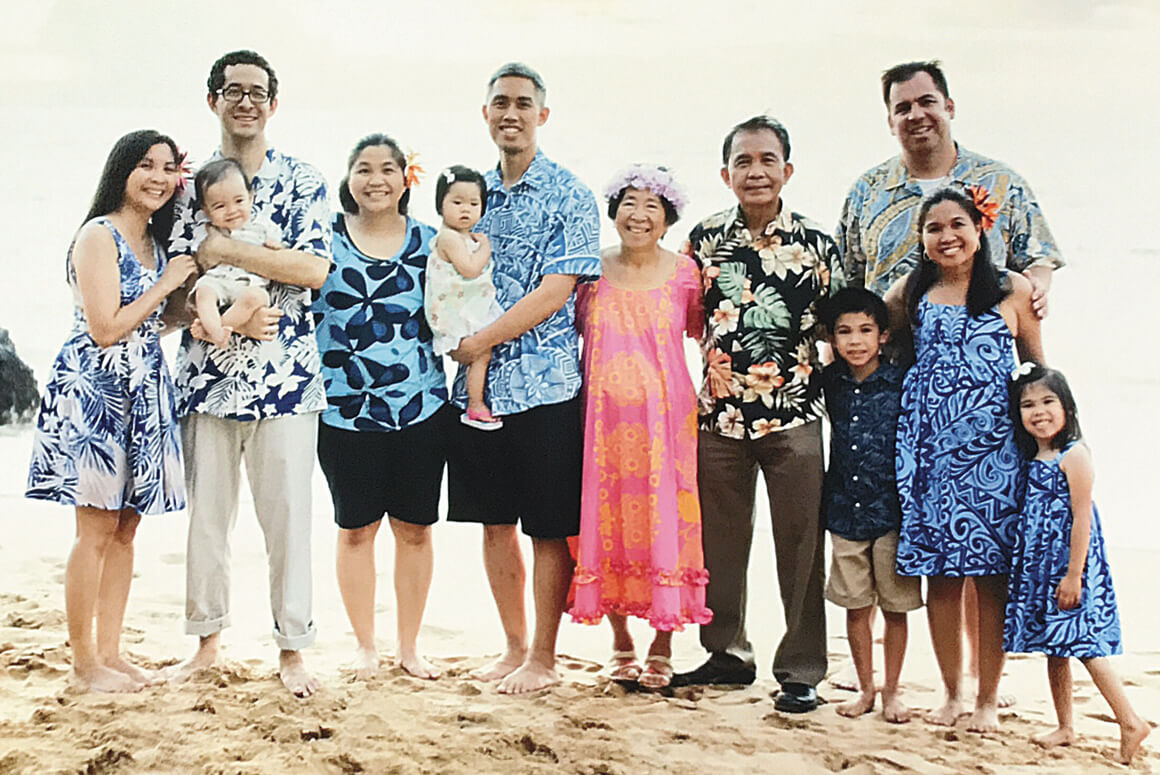
Tony’s other works and initiatives are: author and publisher of [Kalai-aina (Kalai‘aina), County of Maui], the first comprehensive political and social history of the County of Maui. In 1985, Tony was instrumental in the organization of Binhi At Ani (You reap what you sow), a nonprofit corporation. Through the years, Binhi At Ani has awarded scholarship awards to Filipino and non-Filipino outstanding students. He also initiated the United Filipino Council of Hawai‘i “Progress Awards,” a statewide awards program recognizing outstanding individuals of Filipino ancestry. He embarked on a scholarship program to high school and college students throughout the state and awarded more than $40,000. The Aloha Medical Mission and the Justice Benjamin Menor Scholarship program also received substantial contributions.
In 1994, Tony played a key role in the laying of the foundation of the Maui Filipino Chamber of Commerce including the annual awards program of the Chamber’s “Gintong Pamana Leadership and Scholarship Awards,” in which outstanding Filipinos on Maui in all fields of endeavors are recognized. Shortly after the organization of the Maui Filipino Chamber of Commerce, Kaua‘i also organized the Kaua‘i Filipino Chamber of Commerce, and Tony graciously provided them with useful suggestions and materials.
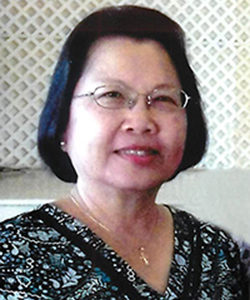
In 2015, Tony made available to the public his compendium entitled [O‘ne Pu‘u], a classic collection of news reports and articles published in three leading newspapers or publications in 1892, the last year of the Hawaiian monarchy. The compendium provides key information leading to the overthrow of the Hawaiian monarch. Such a very talented literary writer, Tony has compiled an unpublished volume of Philippine proverbs entitled, “Three Hundred And One Grains of Palay,” and also a new dictionary of names entitled Ngalan. The dictionary is a pioneering work providing a source of children’s names that are rooted in Philippine languages and dialects (with English translations); a few examples of the names, for girls: Aliw (comfort, consolation), Bituin (Star), Mayumi (modest) and Ulay (chaste); and for boys: Adyo (ascend), Bagani (warrior, vim, vigor), Gawin (work), Sadiri (support, shelter, refuge), and Tanib (amulet). Tony also wrote a column in the Filipino publication, Fil-Am Observer, using the pen name, Yungib A.V. Ramil.
Tony received many service and recognition awards: the Masaru “Pundy” Yokouchi Lae‘ula Award by the Maui Historical Society in 2006, in connection with the celebration of the 100th anniversary of the arrival of the first Sakadas to Hawai‘i, one of 12 outstanding Filipinos of Maui also in connection of the Sakadas’ 100th anniversary, one of 100 Outstanding Citizens of Maui County in 2005, recipient of the Thomas Jefferson Award in 1989 presented by the Honolulu Advertiser and the American Institute for Public Service, Western Round Up Leader Recognition presented by the Boy Scouts of America 1981, outstanding Jaycee of the Year in 1973, recognized one of the Ten Outstanding Filipinos Abroad (TOFA) in Washington D.C., presented the Golden Sakada Award for Lifetime Achievement, Progress Award in Law and Jurisprudence, and Father of the Progress Awards by the UFCH. Besides these awards, with his wife, Luz, they were recognized as parents of the year in 2008, by the Philippine Cultural Foundation of Hawai‘i.
Tony’s hobbies include gardening, picking ‘opihi, walking/hiking, coin collecting, postage stamp collecting, reading primarily on history, self-improvement, mysticism and spirituality. He also plays chess, scrabble, monopoly, mahjong, and solves crossword puzzles, jumbles, and sudoku puzzles.
Tony and Luz live their serene lives together in their home—one that has a panoramic view—in Maui Meadows, Kīhei, Maui, Hawai‘i.
